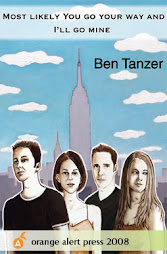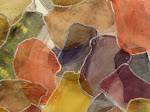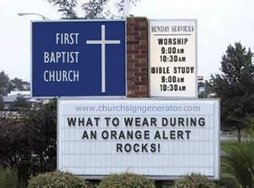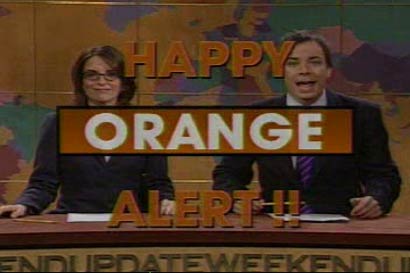
Steinski
"All writing is in fact cut-ups. A collage of words read heard overhead. What else? Use of scissors renders the process explicit and subject to extension and variation. Clear classical prose can be composed entirely of rearranged cut-ups. Cutting and rearranging a page of written words introduces a new dimension into writing enabling the writer to turn images in cinematic variation." ~ William S. Burroughs
If Burroughs believed that all writing is a "cut-up" of previously used words and phrases then it is not a stretch to believe that all music is follows the same principle. A blend of notes and musical phrases, samples and loops, being pieced together in the mind of the musician. With every new arrangement, with every variation of sound and tone, with every cartoon sample, a new song is created. A song, regardless of its influences, that you can call your own. However, some of the greatest musical "cut-ups" have never been legally released. Of course I am talking about the incredible body of work created by Steve Stein (a.k.a. Steinski). With the help Double Dee, Steinski cut and paste hundreds of samples together to create three legendary works known as The Lessons. This three songs blended pop, hip hop, R&B, soul, cartoons, news casts, and all kinds beats and noises. They, along with his other pieces, were revolutionary, inventive, but above all else they were extremely funky!
His works has served as a primary influence to many of today's Dj's (i.e. Cut Chemist, Dj Shadow, Girl Talk), but it may be the popularity of the work of Girl Talk that has served as a platform for Steinski's music to be brought back into the spotlight. Until now Steinski's work has circulated through illegal means, primarily because it is so sample heavy. It only seems fitting that the label that will release his retrospective is called Illegal Art. However, it is disappointing that sample based music has been considered illegal for so long, because as I said all music is in fact a cut-up. Whether you use a guitar, a piano, a laptop, a turntable, or a tape recorded your product, you song deserves to be heard.
Recently, Steinski was kind enough to answer a few of my questions.
Orange Alert (OA): Next month (May 27th) Illegal Arts will be releasing a retrospective of your music career spanning the last 25 years. In your opinion, how has hip hop changed in that time? What I mean is there have been different phases and segments, but has there been a fundamental change?
Steinski (SS): I'm not sure I'd know how to tell the difference between a phase or segment and a fundamental change. Hiphop - at least the hiphop I'm aware of - still revolves around funky beats and breaks, MC'ing, and turntable styling. Hiphop's changed from South Bronx party music to one of the most influential musical styles in the world, but like rock and jazz and house, growth is part of what happens to music when a lot of people recognize its good qualities. It doesn't necessarily mean that the form itself has undergone a fundamental change.
OA: What you and Double Dee created in The Lesson Series has always reminded me of what the DIY Zine Culture of the 70's and 80's was all about. With the cut n' paste, blending of forms and styles, mashing of genres, was there any connection between the two?
SS: I was aware of some of the DIY zine culture from punk magazines like Sniffing Glue and a few others. I'm not sure what Douglas was into as far as improvised print material. I know one of the strong influences on me as far as cut & paste was my ex-wife, who's a gifted collage artist and whose work and interests played a part in my own taste. I think she's the one who turned me on to vsual artists like Louise Nevelson and Joseph Cornell. And Douglas and I were both familiar with the early Buchanan & Goodman "flying saucer" records, of course.
OA: In an interview you did last year you mentioned that you cringe when you hear your older work. What is it about these legendary pieces that make your cringe?
SS: To be precise, I'd have to say that SOME of my older work makes me cringe; thank goodness, that hasn't happened with The Lessons, or with the Double Dee & Steinski remix of "Jazzy Sensation," or with "Nothing To Fear," the mix I did for Solid Steel Radio in the UK. Apart from those pieces - which I still play out and enjoy throughly - it's rare that I listen to other things I've done without wishing I could go back and make different choices about samples, timing, production, whatever.. Oh well.
OA: I just watched Scratch again this past week, I love the way your describe the first time you heard this new form of music. Are you surprised by what musicians like Z-Trip, Cut Chemist, Dj Shadow, Q-bert, and so on have been able to do with Turntable music? Do you see this as the purest form of hip hop or the antithesis of hip hop?
SS: I'm wildly impressed with turntablism and turntablists. I've been lucky enough to share stages with a lot of the great DJ's, and they're all incredible. What's additionally impressive about a lot of them is that they can throw down inflammatory dance sets as well as show off their devastating fader technique.
I'm not sure I'd take such a categorical view of turntablism as being either pure or antithetical to "real" hiphop. It's a creative outgrowth from one of the most basic aspects of the music, and aren't we lucky to be able to see these great artists do their thing?
OA: Like I said your retrospective is being released by Illegal Arts, what are your thoughts on the work of your label mates Girl Talk and Oh Astro? Their work seems to be taking the cut n' paste style to a completely different level.
SS: Girl Talk knocked me on my ass when I first heard his stuff. It seems like supercharged cut & paste dance music. He's great, and I'm hot to see him live. The label hasn't serviced me with Oh Astro yet, so I'm waiting with great anticipation to hear that.
OA: What is next for Steinski?
SS: More touring in Europe and the UK, regular gigging in the NY area with Double Dee and our trained laptops, and probably releasing some of the remixes and edits I've been doing for my dance sets over the past 2 years - as vinyl bootlegs, naturally.
Bonus Questions:
OA: What was the last great book you have read?
Since I gave up TV completely in 1983, I've been able to read a lot of great books. Most recently, I re-read "Hard Times," Studs Terkel's amazing oral history of the 1930's Depression in the US. It's absolutely mindblowing. It's the period of American history when the government's free-market economic policies and hands-off management style put the entire economy into the toilet (sound familiar?), and New Deal policies like Social Security came into being.
OA: Who is the best DJ, from back the day, who never received the recognition he or she deserved?
SS: There are so many great people from back in the day who seem to have drifted out of the spotlight; it's quite unfortunate. A few that come to mind immediately are Chuck Chillout, Charlie Chase, and Oscar O.C., but there are a lot of others...
Listen to: Lesson One: "The Payoff Mix" (mp3)
For more information on Steinski please visit his website, and to preorder you copy of What Does it All Mean? 1983-2006 Retrospective go here.
+by+Nick+Volkert).jpg)





















1 comment:
great interview!
Post a Comment